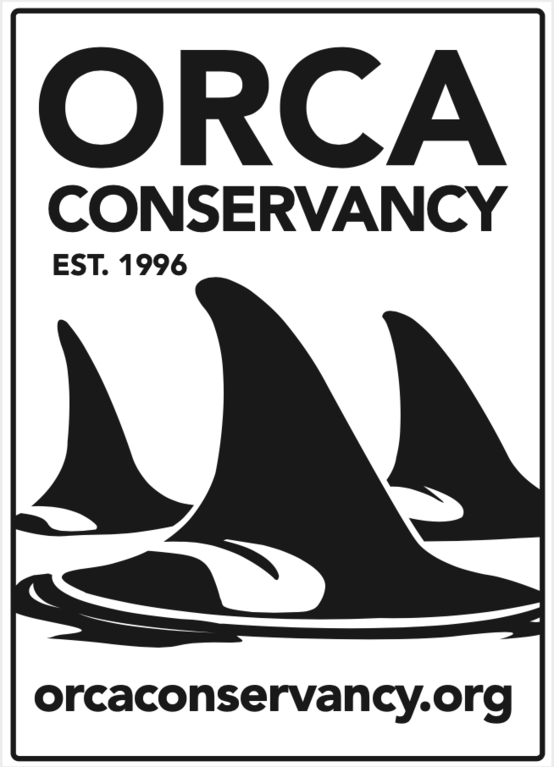Federal Appeals Court Blocks Last Ditch Effort to 'Free Lolita' The Orca
"While working with Orca Conservancy, which advocated for Lolita's release, these lawsuits and appeals are becoming ridiculous especially if you take an honest look at how Lolita's family (J, K, and L-Pod) are currently struggling to survive. This past summer we witnessed J35 carrying her deceased newborn calf for seventeen days, and then watched while J50, a three and a half year old female -- a mere skeleton of her former self -- lose the fight to rightfully exist.While we have the utmost respect for the Lummi Tribe, it is especially hard not to question if the millions of dollars being promised upon Lolita's return would be better spent on restoring the critically endangered Southern Resident killer whale population by increasing - at minimum - education, including restoration projects for salmon, forage fish, and nearshore habitats. I'd be remiss if I didn't try... " Shari Tarantino, President - Orca Conservancy A federal appeals court has blocked a last ditch attempt to free Lolita, the orca housed at the Miami Seaquarium, in a case brought by the non-profit advocacy group People for the Ethical Treatment of Animals, or PETA.The suit alleged that Lolita was being held in violation of the Endangered Species Act since the killer whale was being “harmed” and “harassed” by being held in captivity with other species and being forced to do tricks. Ultimately, the suit called for her release and was part of a years-long campaign to free the orca. Nearly every weekend protesters show up at the gates of the Miami Seaquarium to denounce her captivity and call for her release.
A federal appeals court has blocked a last ditch attempt to free Lolita, the orca housed at the Miami Seaquarium, in a case brought by the non-profit advocacy group People for the Ethical Treatment of Animals, or PETA.The suit alleged that Lolita was being held in violation of the Endangered Species Act since the killer whale was being “harmed” and “harassed” by being held in captivity with other species and being forced to do tricks. Ultimately, the suit called for her release and was part of a years-long campaign to free the orca. Nearly every weekend protesters show up at the gates of the Miami Seaquarium to denounce her captivity and call for her release.
The court called Lolita’s a “unique case” because she is 51-years old, which is older than the median life expectancy for orcas in the wild. “At her advanced age, Lolita cannot be expected to be free of health problems,” wrote the court, which ultimately found that the whale “has no realistic means for returning to the wild without being harmed.”PETA alleged that the “rakes,” or teeth scratches that she has received from dolphins she shares the tank with, amount to evidence of mistreatment. The court refuted that, saying that orcas and dolphins “undisputedly rake each other in the wild,” and that “not only is Lolita suffering fewer rakes than the average wild orca, she is receiving care to make sure her rakes heal.”The ruling was measured in its scope, repeatedly highlighting what it called the uniqueness of Lolita’s circumstances. The panel of three judges wrote that they wanted to avoid “signaling unintentionally that an animal’s age and the level of medical care it receives are determinative” of how future Endangered Species Act cases might be decided. The fact that Lolita has received healthcare treatment for an estimated 48 years of her captivity does not mean that she is being abused or mistreated, the court ruled. In fact, it might well prove the opposite."This ruling sentences a highly intelligent, deeply lonely, and distressed orca to a lifetime of physical and psychological harm, confined to a tiny concrete cell without family, friends, or freedom," PETA attorney Jared Goodman said in a statement. "It ignores today's understanding of the way orcas suffer deeply in captivity, and PETA will continue pushing for Lolita's release into a protected seaside sanctuary in her home waters."Activists have spent years calling on Lolita's release, a campaign which first picked up steam after the 1995 film Free Willie, and was again revived after the 2013 documentary Blackfish shed light on the psychological plight of orcas held in captivity in Sea World. One stunt involved a New Zealand woman living in a bathtub for a month in front of the Miami Seaquarium, in an exhibit she called "Living Like Lolita."PETA has helped organize protests at the Seaquarium as part of its campaign to free the orca.Last year, Miami Seaquarium park manager Andrew Herz told WLRN the orca is "healthy and thriving" and that there is no evidence she could be reintroduced back into the wild. Scientists have agreed with that assessment, saying that releasing her into the wild at this stage in her life would likely do her more harm than good.
